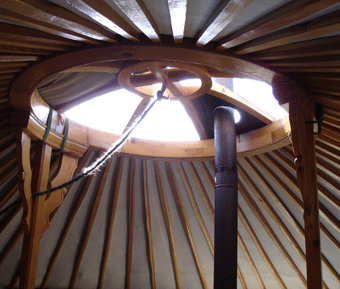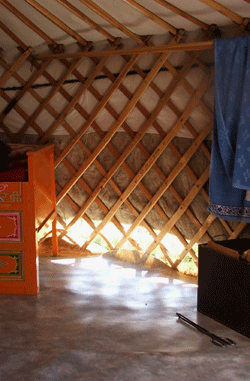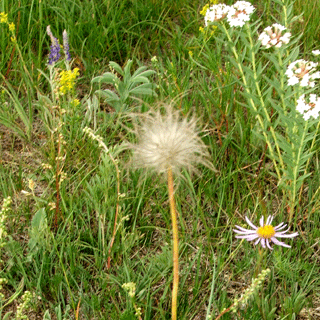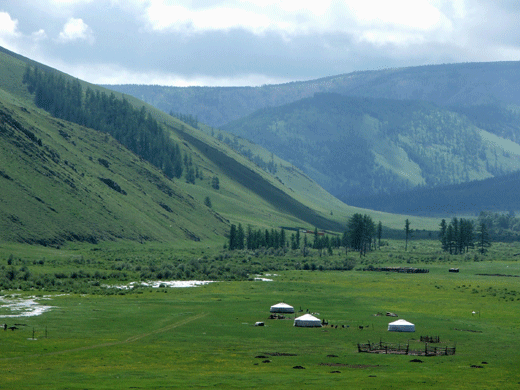Tales of a 21st Century Gypsy
July 8, 2006. Jalman Meadows again
I can’t believe I only arrived yesterday - it feels like I’ve been here forever. Or at least for a while. Jennifer – the Swiss woman – left in the morning, and now I’m the only guest. So it’s me and six staff. I eat my meals in state in the dining ger, waited on by a young man who knows little English and also seems to have a speech problem. But he’s very nice.
It’s very quiet, being here. I didn’t go horseback riding – turned out the horses had gone away, no one knew where. They graze at will, but usually they stay nearby. This morning, however, they
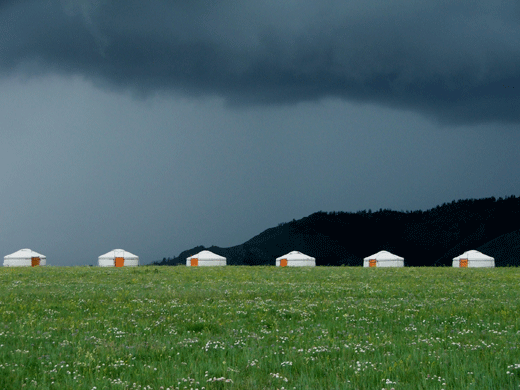
took off on their own. The staff of the ger camp set up the spotting scope that usually sits it the library, and gazed across the distant meadows, but there was no sign of the horses. So after breakfast I went for a walk instead, along the road we drove in on. It’s a pretty good dirt road, running along the valley parallel to the river. It was good to walk, and much less frightening than a horse. But all of the sudden the flies were just too much, and I headed back.
After lunch – a sort of Chinese-style fry of meat, peppers, onions, mushrooms, and potatoes – we had a thunderstorm. It threatened us for a while, and early in the afternoon we ran to “batten down the hatches” on all the gers in the camp. When the weather is nice they open up the gers – pull back the thick felt pad covering the hole in the roof, and peel back the pads at the bottom of the walls to let the breezes in. It’s quite nice with the ger opened up – fresh air blows through, and the gauzy curtain that pulls across the doorway flaps and dances. The roof lets in plenty of light, and having the “windows” down on the
